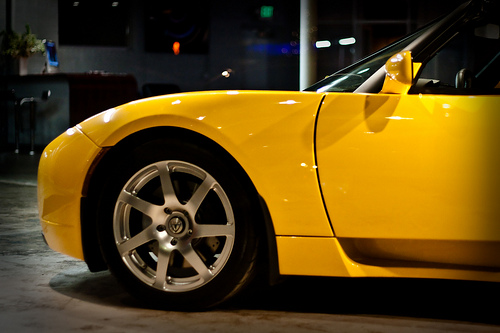If you thought the all-electric Tesla Roadster was fast — it can go from zero to 60 in 3.7 seconds — wait until you get a load of the forthcoming electric supercar from little-known Leo Motors of South Korea.
Details are sketchy, but the company claims that within six months, it will show off a vehicle that goes from zero to 60 in 2.9 seconds. That level of acceleration would make it the second fastest electric vehicle in the world, after the all-electric Shelby SuperCars Aero EV. (The Areo EV is no slouch when compared to conventional vehicles, by the way; It's currently in a dead heat with the 16-cylinder Bugatti Veyron for the title of world's fastest production car.)
It's worth noting that the Leo Motors supercar isn't all electric. But neither is it a plug-in or inline hybrid as most Americans would currently conceive of it. Instead, it draws additional range from a tank that holds liquefied petroleum gas, a mix of propane and butane that is used to fuel vehicles in some countries but is rarely seen in the U.S.
The car would have a maximum range of 249 miles on electric power and 560 miles with the LPG thrown in.
If you're interested in the press release equivalent of an electric monster truck rally, here's the part of Leo Motors' announcement where they throw down the gauntlet to Tesla Motors:
LZ-1 goal is to drive 249 miles with a single charge; to speed up to 161 miles per hour; to exert a maximum torque of 68kg/m generated from 240 kW electric motor, which would be a monstrous performance comparable with the mechanical performances of Tesla, the well known electric sports car. Tesla is known with driving range 249 miles, maximum speed 125 miles per hour, and maximum torque of 40kg/m using 215 kW electric motor.




